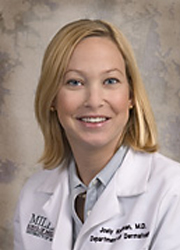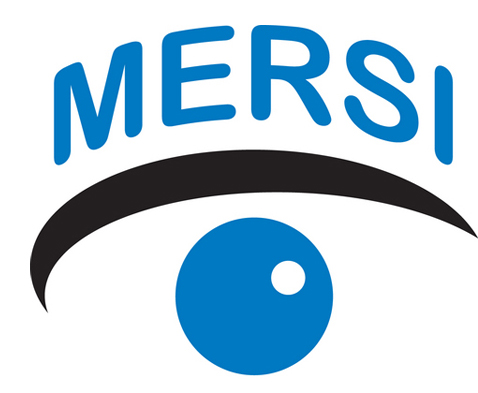REQUEST AN APPOINTMENT
TESTIMONIALS
Skin Cancer
Skin cancer is the most common of all cancers, and develops when DNA, the molecule found in cells that encodes genetic information, becomes damaged beyond repair. These damaged cells begin to grow and divide uncontrollably. When this occurs in the skin, skin cancer develops. As the damaged cells multiply, they form a tumor. Since skin cancer generally develops in the epidermis, the outermost layers of skin, a tumor is usually clearly visible. This makes most skin cancers detectable in the early stages.

Signs & Symptoms of Skin Cancer
Skin cancer can be found early, and both dermatologists and patients play important roles in finding it. If you have any of the following symptoms, you may be suffering from skin cancer:
- Any change of your skin. Especially in the size or color of a mole, growth, or spot, or a new growth.
- Scaliness, oozing, bleeding, or change in the appearance of a bump or nodule
- The spread of pigmentation beyond its border, such as dark coloring that spreads past the edge of a mole or mark
- A change in sensation, such as itchiness, tenderness, or pain
Risk Factors for Skin Cancer
Risk factors for non-melanoma and melanoma skin cancers include:
- Unprotected and/or excessive exposure to ultraviolet (UV) radiation
- Pale complexion
- Occupational exposures to coal tar, pitch, creosote arsenic compounds, or radium
- You or other members of your family have had skin cancers
- Multiple or unusual moles
- Severe sunburns in the past
Basal & Squamous Cell Skin Cancers
These types of skin cancer are classified as non-melanomas, and usually start in the basal cells or squamous cells, which is how they get their names. Most non-melanoma skin cancers develop on sun-exposed areas of the body like the face, ear, neck, lips, and the back of the hands. Depending on the type, they can be fast or slow growing, but they rarely spread to other parts of the body. Basal cell or squamous cell cancers are, moreover, highly likely to be cured if found and treated early.
Melanoma Skin Cancer
Melanoma is a cancer that begins in the melanocytes, the cells that produce the skin coloring or pigment known as melanin. Melanin helps protect the deeper layers of the skin from the harmful effects of the sun.
Melanoma is almost always curable when it is found in its early stages. Although the disease accounts for only a small percentage of skin cancer, it is far more dangerous than other skin cancers, and causes most skin cancer deaths.
Melanoma Survival Rates
- The overall 5-year survival rate for melanoma is 91%.
- For localized melanoma, the 5-year survival rate is 98%
- Survival rates for regional and distant stage diseases are 62% and 16%, respectively
- About 84% of melanomas are diagnosed at a localized stage
Other Types of Skin Cancer
There are a few rare types of skin cancer such as keratoacanthomas, Merkel cell carcinoma, skin lymphoma, Kaposi sarcoma, skin adnexal tumors, and sarcomas. These are all non-melanoma types.
Diagnosing Skin Cancer
To diagnose skin cancer, one of our renowned physicians may examine your skin to determine whether your skin changes are likely to be skin cancer. Because further testing may be needed to confirm the diagnosis, your physician may also remove a sample of suspicious skin for testing. This process, which is known as skin biopsy, involves the removal of a small sample of suspicious looking skin for laboratory testing. A biopsy can determine whether you have skin cancer, and, if so, what type of skin cancer you have.
Skin Cancer Treatments
While treatment options vary based on the individual and the type of cancer, several options are available, such as:
- Freezing (destroying early skin cancers by freezing them with liquid nitrogen)
- Excisional surgery (Cutting out cancerous tissue and a surrounding margin of healthy skin)
- Laser therapy (an intense beam of light vaporizes growths. This is a great treatment option superficial skin cancers)
- Mohs surgery (procedure for larger, recurring or difficult-to-treat skin cancers)
- Curettage and elextrodesiccation (procedure used to treat small or thin basal cancers)
- Radiation therapy (radiation may be used in cases where surgery is not an option)
- Chemotherapy (drugs are used to kill cancer cells)
- Photodynamic therapy (this treatment destroys skin cancer cells with a combination of laser light and drugs)
- Biological therapy (used to stimulate your immune system in order to kill cancer cells)
Preventing Skin Cancer
The best way to lower the risk of non-melanoma skin cancer is to avoid long exposure to intense sunlight and practice sun safety. You can still exercise and enjoy the outdoors while using sun safety at the same time. Here are some ways you can make sure you are safe under the sun:
- Avoid the sun between 10AM and 4PM
- Seek shade, especially in the middle of the day
- Cover up with protective clothing to guard your skin
- Use sunscreen and lip balm with a SPF of 15 or higher
- Use sunscreen even on hazy or overcast days, and reapply every two hours
- Wear a hat to shade your face, ears, and neck
- Wear sunglasses with 99% or 100% UV absorption
- Avoid other sources of UV light, such as tanning beds and sun lamps
If you are suffering from skin cancer, or if you have any of the signs and symptoms previously mentioned, Schedule a consultation with one of the skin cancer experts at Beverly Hills Medical Center of Kuwait by calling +(965)-222-89999 today!
Next, learn about skin care treatments.










